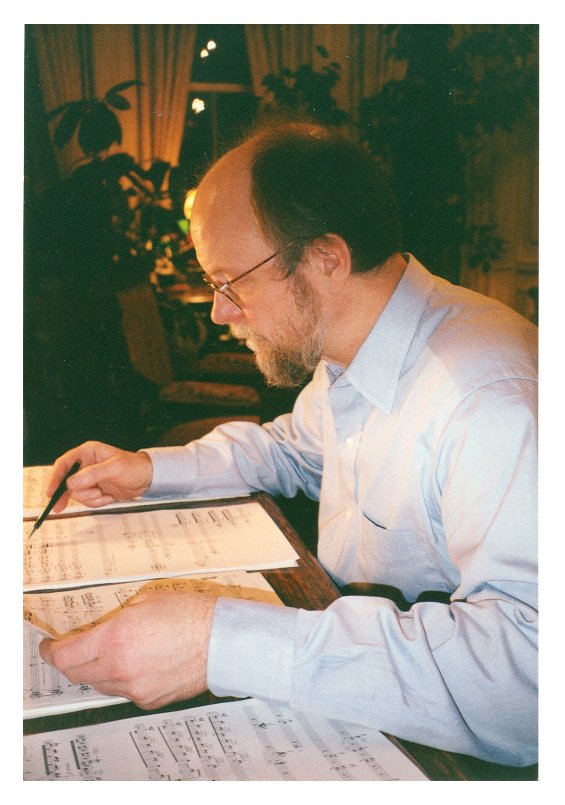

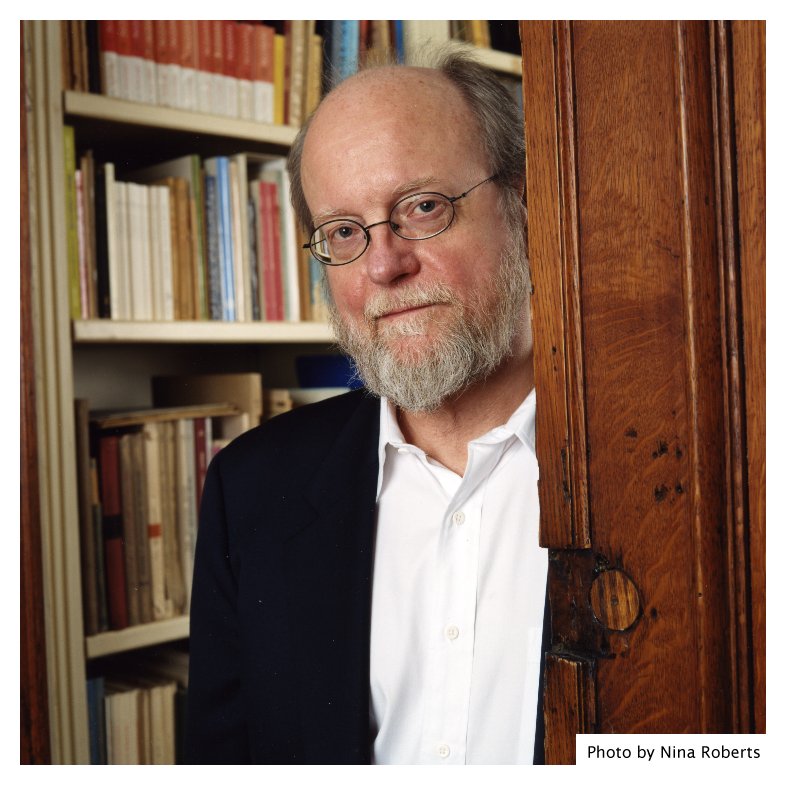 BD: Conductors never find things in your score that you
didn't know you'd put there?
BD: Conductors never find things in your score that you
didn't know you'd put there?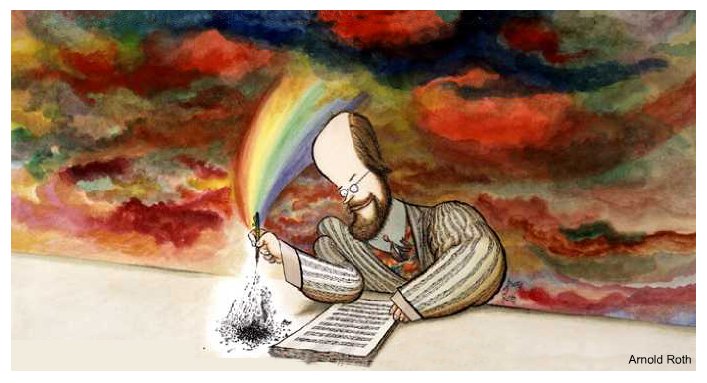 CW: I don't think so. Composers don't become composers
because they think there's room for one more; they become composers because
they have to. Ours is not a profession that you go into because you
think people want it; you go into it because you must, and if you don't have
the undeniable need to write music, then you shouldn't be doing it to begin
with, because it's an arduous life, filled with misunderstanding, and not
very remunerative.
CW: I don't think so. Composers don't become composers
because they think there's room for one more; they become composers because
they have to. Ours is not a profession that you go into because you
think people want it; you go into it because you must, and if you don't have
the undeniable need to write music, then you shouldn't be doing it to begin
with, because it's an arduous life, filled with misunderstanding, and not
very remunerative.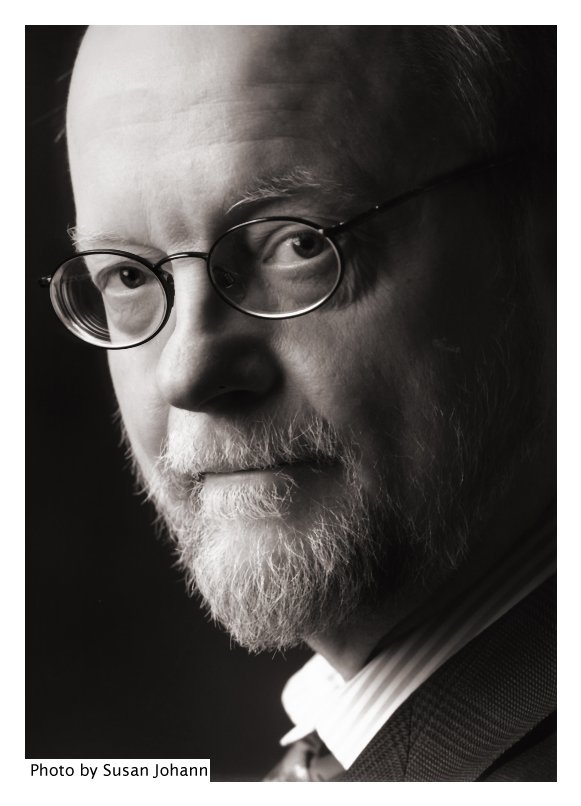 BD: Do you ever go back and revise scores?
BD: Do you ever go back and revise scores?| CHARLES WUORINEN (b. 9 June 1938,
New York City) has been composing since he was five and he has been a forceful
presence on the American musical scene for more than four decades. In 1970, Wuorinen became the youngest composer to win the Pulitzer Prize in music for Time's Encomium, an electronic composition written on commission from Nonesuch Records. The Pulitzer and the MacArthur Fellowship are just two among many awards, fellowships and other honors to have come his way. 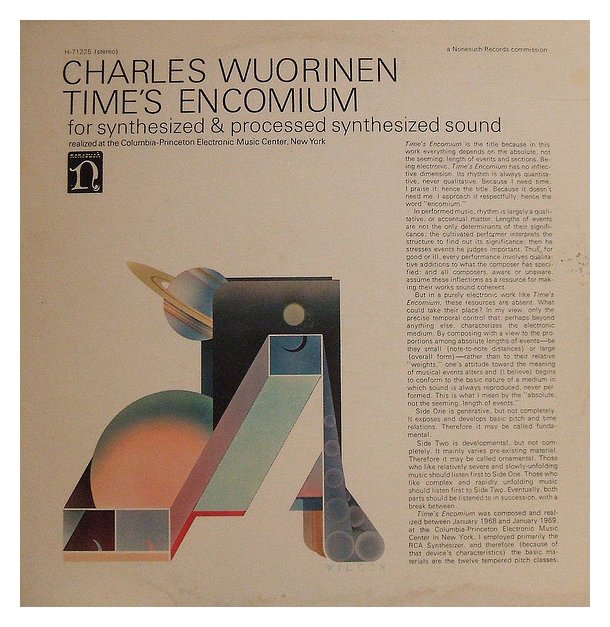
Wuorinen has written more than 250 compositions to date. His newest works include It Happens Like This, a dramatic cantata on poems of James Tate to be premiered at Tanglewood in Summer 2011, Time Regained, a fantasy for piano and orchestra for Peter Serkin, James Levine and the MET Opera Orchestra, Eighth Symphony for the Boston Symphony Orchestra, and Metagong for two pianos and two percussion. He is currently at work on an operatic treatment of Annie Proulx’s Brokeback Mountain to a libretto by the author. (Wuorinen’s Haroun and the Sea of Stories based on the novel of Salman Rushdie was premiered by the New York City Opera in Fall 2004.) An indication of Wuorinen's historical importance can be seen in the fact that in 1975 Stravinsky's widow gave Wuorinen the composer's last sketches for use in A Reliquary for Igor Stravinsky. Wuorinen was the first composer commissioned by the Cleveland Orchestra under Christoph von Dohnanyi (Movers and Shakers); and likewise the first to compose for Michael Tilson Thomas' New World Symphony (Bamboula Beach). Fractal geometry and the pioneering work of Benoit Mandelbrot have played a crucial role in several of his works including Bamboula Squared and the Natural Fantasy, a work for organ. His works have been recorded on nearly a dozen labels including several releases on Naxos, Albany Records (Charles Wuorinen Series), John Zorn’s Tzadik label, and a CD of piano works performed by Alan Feinberg on the German label Col Legno. Wuorinen's works are published exclusively by C.F. Peters Corporation. He is the author of Simple Composition, used by composition students throughout the world. An eloquent writer and speaker, Wuorinen has lectured at universities throughout the United States and abroad, and has served on the faculties of Columbia, Princeton, and Yale Universities, the University of Iowa, University of California (San Diego), Manhattan School of Music, New England Conservatory, State University of New York at Buffalo, and Rutgers University. Wuorinen has also been active as performer, an excellent pianist and a distinguished conductor of his own works as well as other twentieth century repertoire. His orchestral appearances have included the Cleveland Orchestra, Chicago Symphony, New York Philharmonic, San Francisco Symphony, Los Angeles Philharmonic, and the American Composers Orchestra. In 1962 he co-founded the Group for Contemporary Music, one of America's most prestigious ensembles dedicated to performance of new chamber music. In addition to cultivating a new generation of performers, commissioning and premiering hundreds of new works, the Group has been a model for many similar organizations which have appeared in the United States since its founding. Wuorinen is a member of both the American Academy of Arts and Letters and the American Academy of Arts and Sciences. -- Biography from the composer's official website
|
This interview was recorded in an office upstairs at Orchestra Hall in Chicago on February 26, 1987. Portions (along with recordings) were used on WNIB in 1988, 1993, and again in 1998. An unedited copy of the audio was placed in the Archive of Contemporary Music at Northwestern University. This transcription was made and posted on this website in 2012.
To see a full list (with links) of interviews which have been transcribed and posted on this website, click here.
Award - winning broadcaster Bruce Duffie was with WNIB, Classical 97 in Chicago from 1975 until its final moment as a classical station in February of 2001. His interviews have also appeared in various magazines and journals since 1980, and he now continues his broadcast series on WNUR-FM, as well as on Contemporary Classical Internet Radio.
You are invited to visit his website for more information about his work, including selected transcripts of other interviews, plus a full list of his guests. He would also like to call your attention to the photos and information about his grandfather, who was a pioneer in the automotive field more than a century ago. You may also send him E-Mail with comments, questions and suggestions.